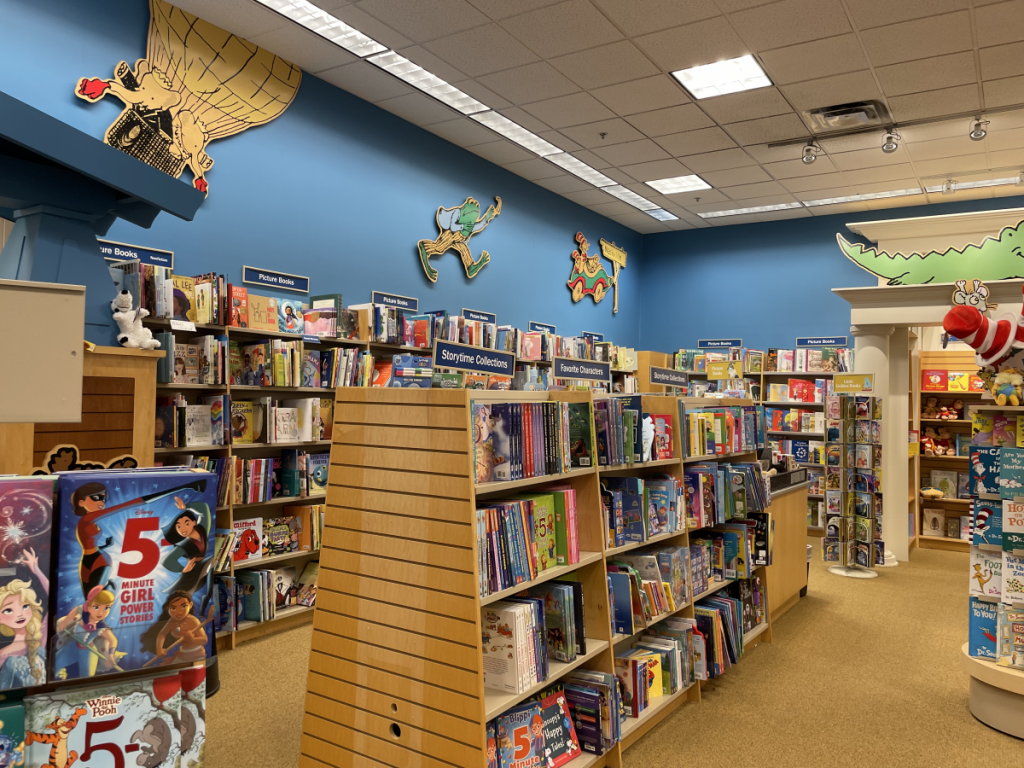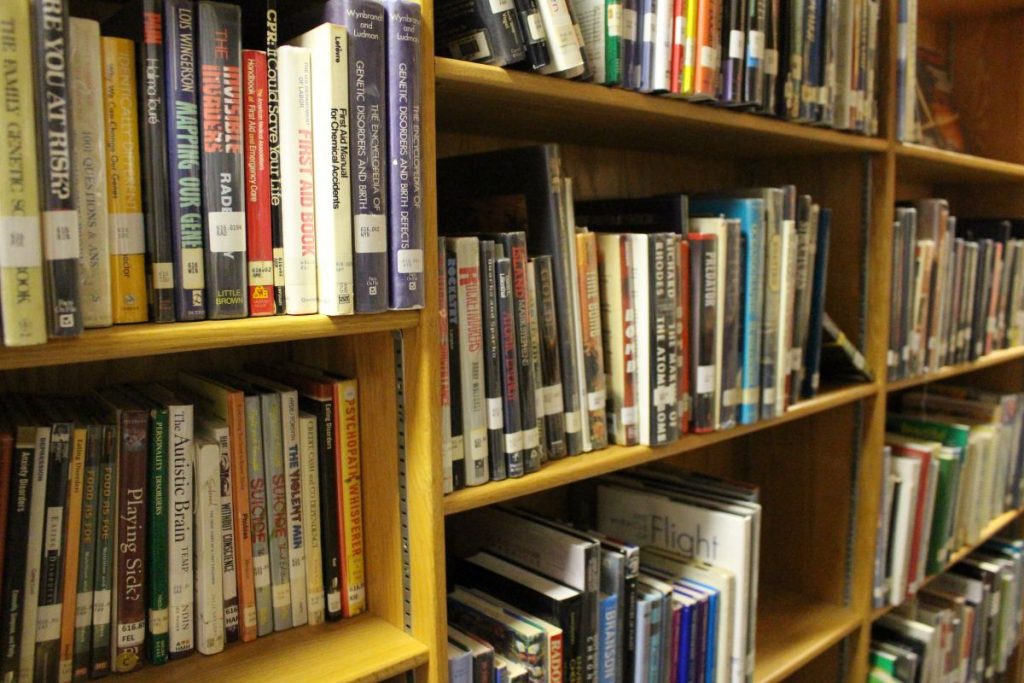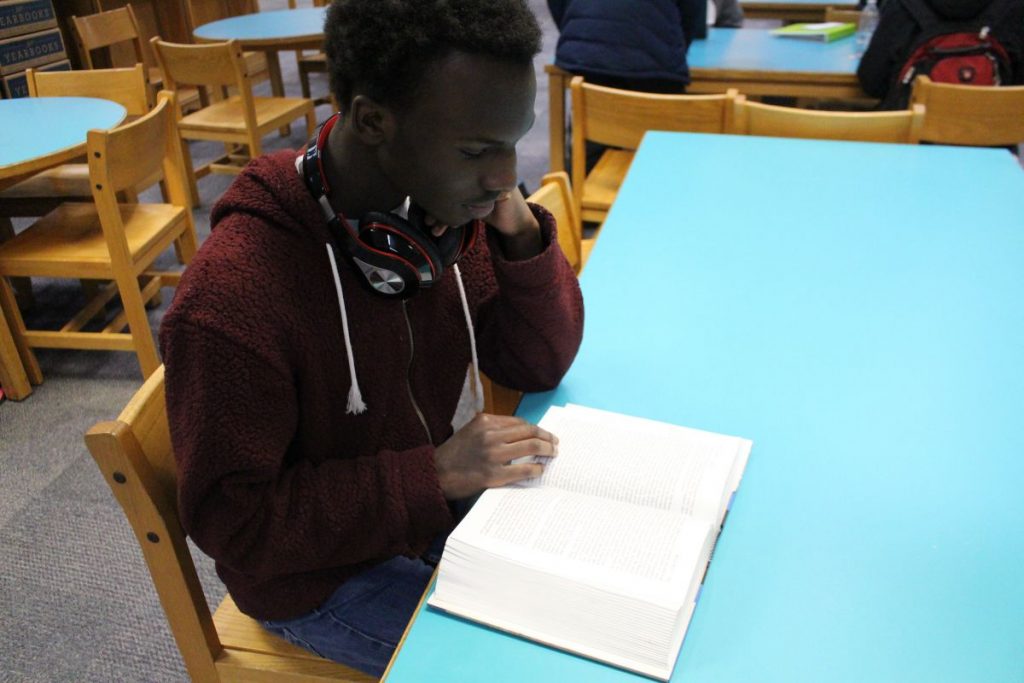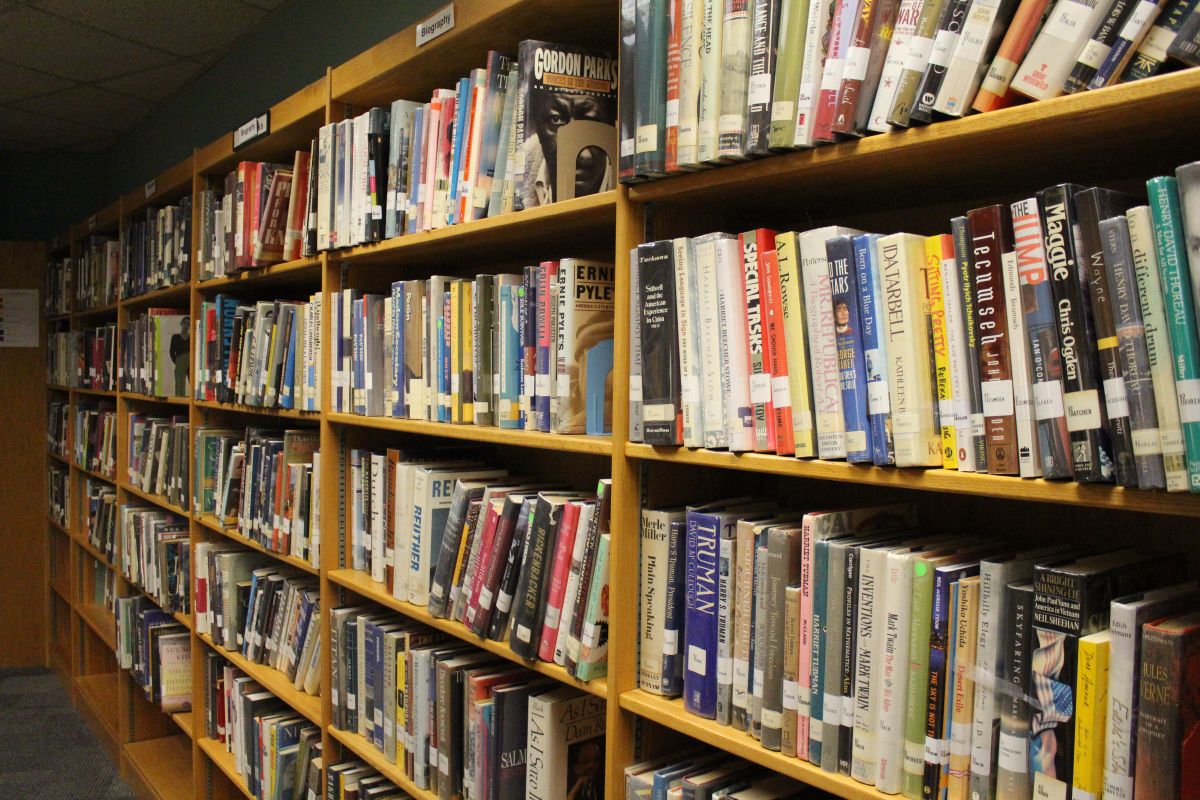Penn’s Instructional Media Center, or the library, is one of Penn’s most used facilities. With a wide variety of books and many classes and clubs being held in it, the library is commonly populated. Though libraries are such an essential resource to many, there are some forces fighting against them, trying to censor the media in these centers.
Banned books have always been a heavy topic, with the first book ban dating back to 1637. That year, Thomas Morton had just published his first nonfiction, New English Canaan. New English Canaan is about the English colonization of the Americas and its negative impacts, leading the Puritan government to outlaw it because it was seen as a severe opposition to Puritan traditions and social hierarchies. However, book bans in 1637 were a lot different than in 2023.
Penn’s own librarian, Ms. Caelea Armstrong, who started as an English teacher over 10 years ago, has some of her own opinions on banning books:

“I think banning books is a slippery slope. There are many layers to present-day conversations about banning books.”
“Authors have audiences. Movies have ratings for their audiences. Video games and music have ratings for their audiences…School librarians need to consider their audiences.”
Most banned books deal with race, sexual assault, and other heavy topics. The Hate U Give is one of America’s most challenged books because it is seen as an anti-police book and is claimed to overuse profanity. In an interview with Entertainment Weekly in 2018, author Angie Thomas stated that “There’s the assumption that it’s an “anti-police book, when the fact is its anti-police brutality.” Earlier, in that same article, the author of the story, David Canfield, fired back at the claims of overusing profanity, saying that “books featuring more graphic depictions of drug use (not to mention racism and sexuality) sat on its [school libraries] shelves.”

“I know our students, and I know our students are dealing with broken families, family pressures, trauma, substance abuse, violence, loss of loved ones, gender identity, etc, and so I make some purchases of books that explore these topics. Does that mean I am pushing these? Absolutely not, but I know the power and validation of seeing yourself reflected in books and stories, and I know that these stories often give hope…….and I think the most important thing an adult can do for humanity is provide hope!”
Whether you believe banning books is a good thing or not, it is important to acknowledge the effect this banning binge has had on the education of the youth. Without exposure to differing opinions and people, children will be conditioned to believe that only one perspective is correct and will learn prejudice.

“To the people who say that reading a book about <insert controversial topic here> is going to turn their kid towards that very thing, I would say engage in more dialogue about that topic, do more research yourself, [and] seek understanding.”
The treacherous Battle of Banned Books has been going on for nearly 4 centuries already and is expected to continue even longer. Looking forward, the most we, as students and parents, can do is read. Reading challenged books, such as The Hate U Give or New English Canaan before the ban gets to them is a common conclusion from librarians across the country, including Ms. Armstrong. To take it a step further, you can fill out a form reporting any forces toward banning books on the American Library Associations’ website. On the other hand, if you’re looking into censoring a book yourself, you can contact your local library or school board. With more and more people budding heads every day, who knows when or how this battle on banned books will end.
“The greatest loss would be to lose a library because a community can’t agree on what is allowable in print.”
Ms. Caelea Armstrong

